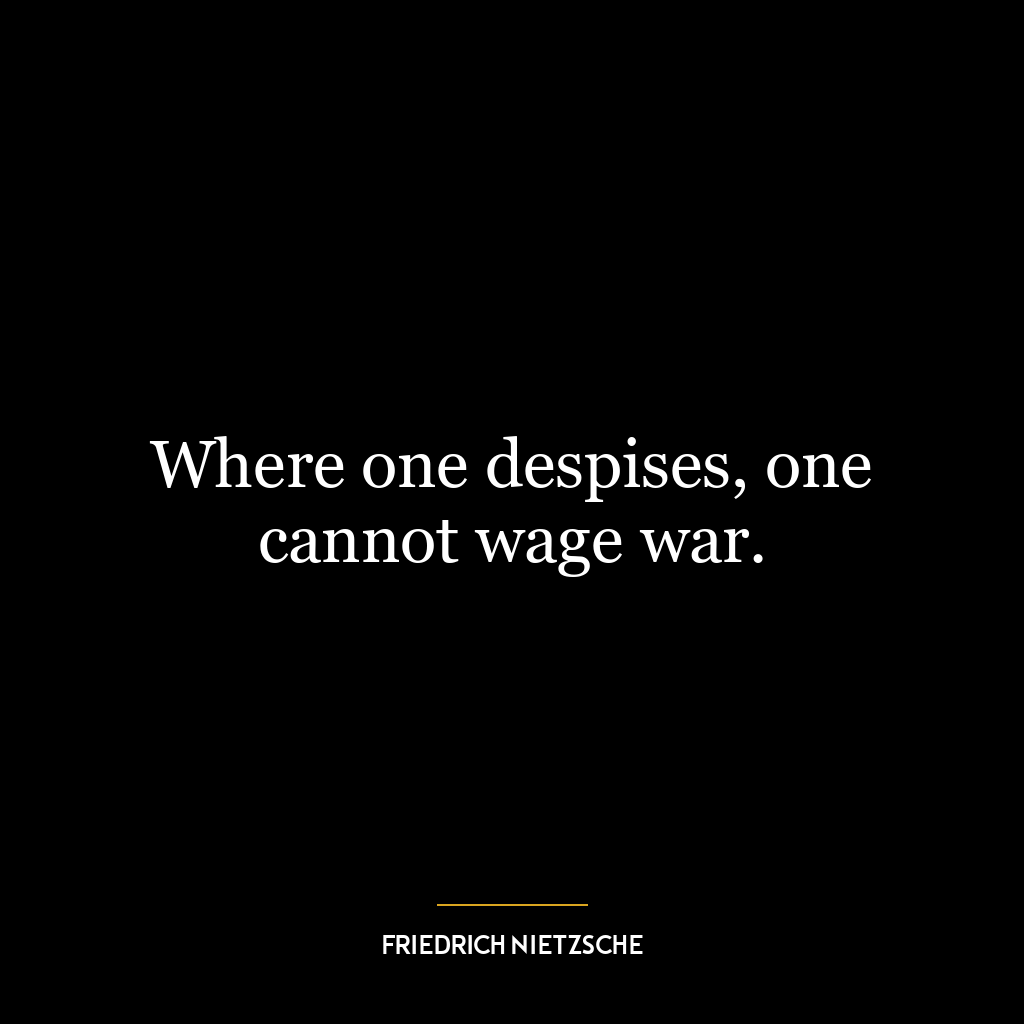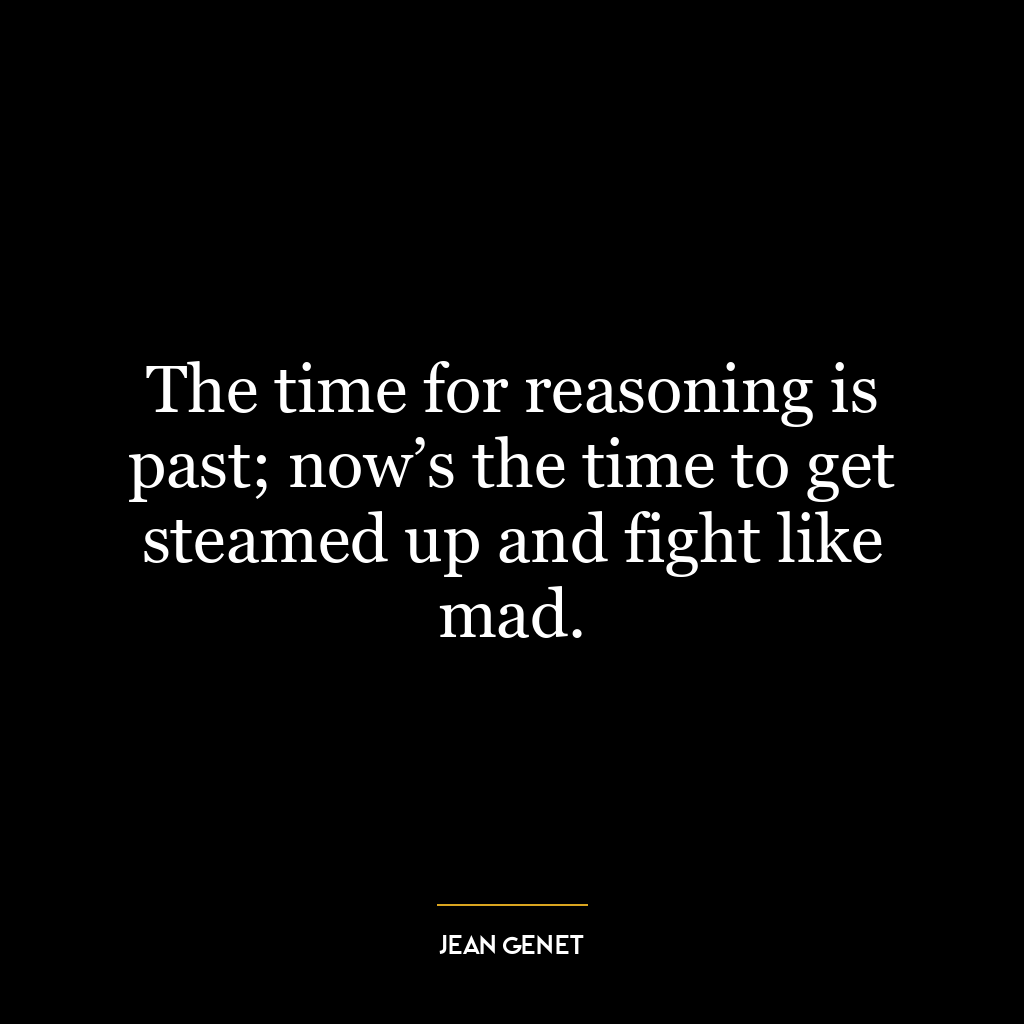“Where one despises, one cannot wage war” is a statement that challenges conventional thinking about conflict. At first glance, it might seem counterintuitive, as we often associate war and conflict with feelings of hatred or disdain. However, the quote suggests that to truly engage in war or conflict, one must respect one’s opponent.
Despising someone or something often means disregarding or underestimating them, which can lead to complacency and a lack of understanding. In contrast, waging war requires a deep understanding of the opponent’s strengths and weaknesses, their strategies, and their motivations. This level of understanding can only come from a place of respect, not contempt.
Moreover, the quote suggests that despising someone else dehumanizes them, reducing them to a caricature or stereotype. This dehumanization can prevent genuine engagement and conflict, as it’s not based on the reality of who the ‘enemy’ really is. In a way, despising someone else is a form of self-deception that prevents us from seeing the true nature of the conflict.
In today’s world, this idea can be applied in many areas, from politics and international relations to personal development. In politics, for instance, it’s easy to despise those with differing views, but this can prevent meaningful dialogue and resolution of conflicts. Instead, respecting the opponent’s views, even if we disagree with them, can lead to a deeper understanding and more productive discussions.
In personal development, this quote can be a reminder to approach our personal ‘battles’ with respect rather than contempt. For example, if we despise a part of ourselves, such as a perceived weakness, we may avoid addressing it or underestimate its impact on our lives. But if we respect it as a part of who we are, we can engage with it more fully, understand it, and ultimately, learn how to manage it.
In essence, the quote is a call for respect and understanding in the face of conflict, a principle that is as relevant today as it was when it was first written.













